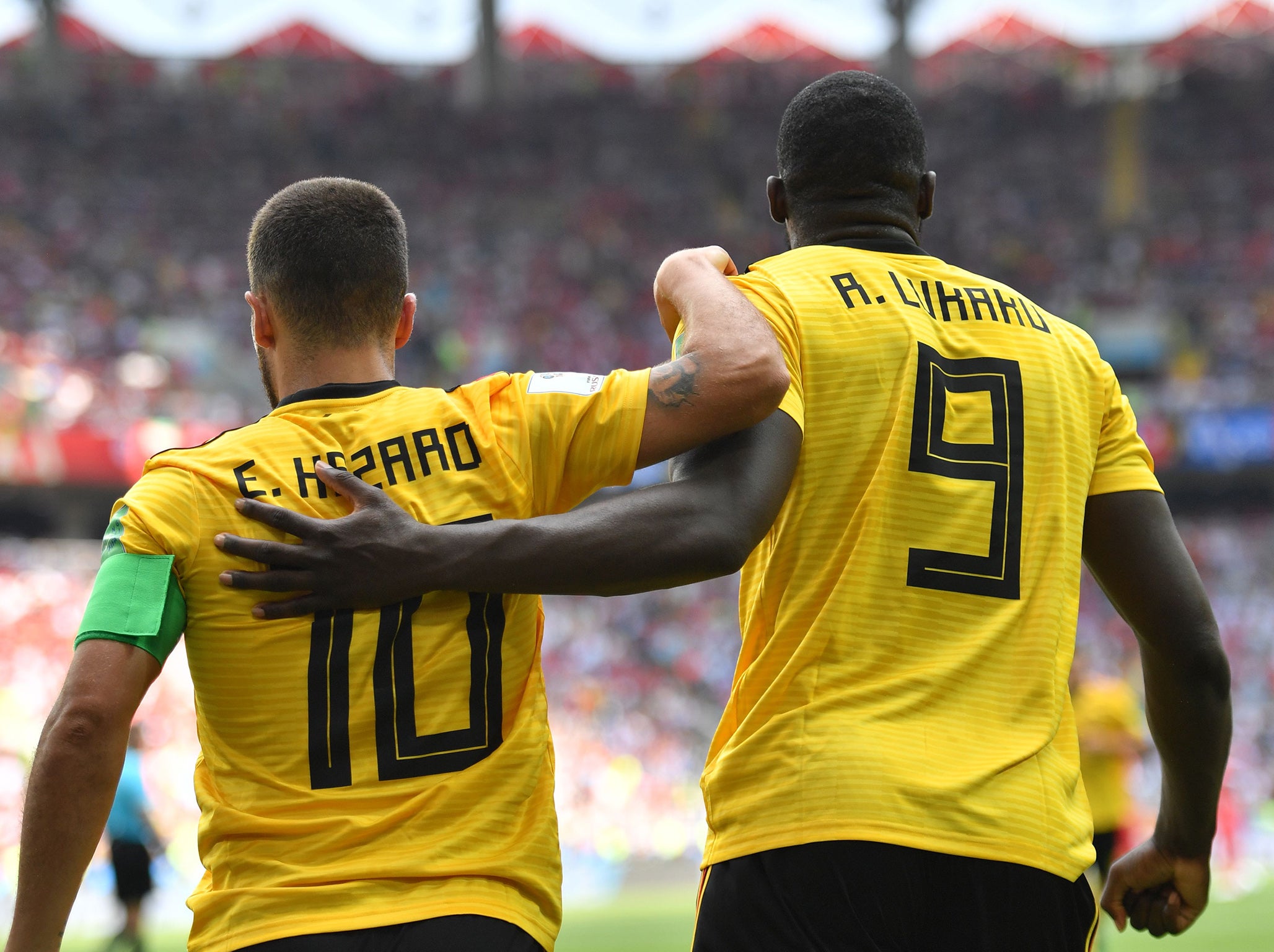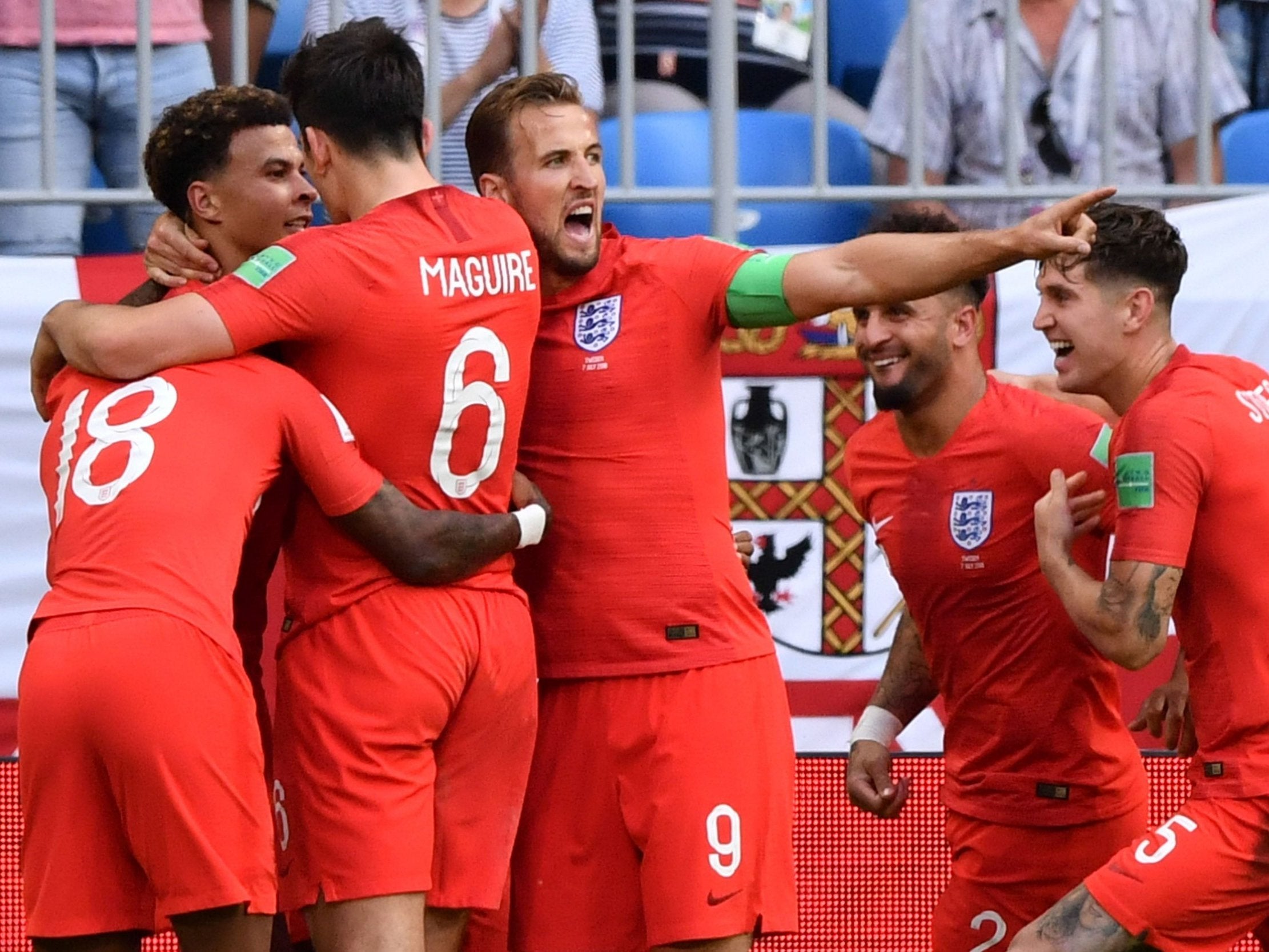Whether England win or not, the Premier League’s Russian supremacy is driving force behind any World Cup triumph
40 of the 92 players left at the World Cup play in the Premier League

Your support helps us to tell the story
From reproductive rights to climate change to Big Tech, The Independent is on the ground when the story is developing. Whether it's investigating the financials of Elon Musk's pro-Trump PAC or producing our latest documentary, 'The A Word', which shines a light on the American women fighting for reproductive rights, we know how important it is to parse out the facts from the messaging.
At such a critical moment in US history, we need reporters on the ground. Your donation allows us to keep sending journalists to speak to both sides of the story.
The Independent is trusted by Americans across the entire political spectrum. And unlike many other quality news outlets, we choose not to lock Americans out of our reporting and analysis with paywalls. We believe quality journalism should be available to everyone, paid for by those who can afford it.
Your support makes all the difference.“Arsenal win the World Cup”, read the front page of the Daily Mirror on 13 July 1998, the day after France had beaten Brazil 3-0 in Paris. And if the headline feels a bit of a stretch now - only one Arsenal player (Emmanuel Petit) actually started that game, with Patrick Vieira coming on as a late substitute - then it provides a handy snapshot into those innocent, light-headed early days of the Premier League. Until that point, no player had won the World Cup while plying his trade in England since 1966. And even though the foreign influx was well under way by that point, the idea of English-based players conquering the global stage still seemed a giddy novelty, a source of curious proxy patriotic pride.
Two decades on, you might say the conquest is complete. Four teams remain in this summer’s competition, and of the players in those squads, just under half - 40 out of 92 - play their football in England. To put that into perspective, that’s just one fewer than the combined number of La Liga (12), Bundesliga (9), Ligue 1 (12) and Serie A (8) players still standing. The tale of the 2018 World Cup has, in many ways, been one of the triumph of the Premier League.
Should England follow the example of Italy in 2006 and win the tournament with an entirely domestic-based squad, it would complete the set of Big Five leagues to have secured a World Cup trophy for their host country. And for all its ostensible surprise value, an England triumph would in many ways be entirely in keeping with the prevailing economics of the game.
During his post-match press conference after the quarter-final win over Sweden, Gareth Southgate was asked about how much his squad had benefited from the influence of the Premier League’s top coaches. “From an English perspective, we’re very fortunate that our young players are playing for Conte, Klopp, Mourinho, Guardiola, Arsene, top foreign coaches,” he said. (The omission of Mauricio Pochettino was surely inadvertent; Southgate has praised his contribution on numerous occasions in the past.) “They’ve been coached at their clubs every day of the week, and given opportunities to play. That has produced young players who can handle the ball.”
And yet, we should probably be wary of giving the Premier League too much credit. After all, the star appeal and naked capitalism that has attracted the world’s best to England must be balanced against the consequent restriction of opportunities for domestic players and coaches. The Premier League doesn’t develop English footballers out of the goodness of its heart. It’s simply an entertainment platform for anybody good enough to compete; of whom a few will, coincidentally, be English.

“The reason the best foreign players play in the Premier League is because we pay the most money,” said Southgate with a commendable baldness of fact. “The more remarkable thing is that we’re in a semi-final, but we only have 33 per cent of the league to pick from. That is still a huge problem for us. We are playing some young players who are barely established at their clubs, let alone in their international careers.”
This is, after all, about more than England. While Croatia have just one Premier League player in their squad in Dejan Lovren, France have five and Belgium 11. It is not inconceivable that if England and Belgium meet in the final on Moscow next Sunday, 20 of the 22 starters could be from the Premier League. Meanwhile, there are as many Tottenham players remaining at the World Cup (nine) as there are from the whole of the Bundesliga.

And across the tournament as a whole, the financial gravity of world football is never more starkly illustrated than by the fact that more than one in six of all the players at this World Cup play their football in England. That's more than Germany and Italy combined. The EFL has been able to field more players at this World Cup than all the leagues in Africa put together.
The reasons for this are, of course, manifold and complex. The relatively equitable distribution of Premier League television money - in stark contrast, say, to La Liga, where a far higher share of the proceeds are funnelled to Barcelona and Real Madrid - has created more clubs with the means to possess, if not necessarily world-class players, then certainly World Cup-class players. The 40 remaining Premier League footballers in Russia are spread between 12 different clubs (if we cheat a little and include Nacer Chadli, still at relegated West Brom).
And of course that money attracts more than just good players; it attracts the best coaching, the best analysis, the best sports science and medicine, the biggest audiences and thus the most pressured environments. It’s a fair bet, for example, that Belgium would not be anything like the force it is now had the likes of Kevin de Bruyne, Romelu Lukaku and Eden Hazard still been playing in the Jupiler Pro League in front of 15,000 crowds rather than benefiting from the vast support network the modern Premier League club can offer.
This goes against how we have traditionally liked to perceive international football. At heart, we like to imagine it as a clash of cultures, of systems, even of peoples. And while that’s clearly still true to a certain point, it’s becoming less and less so as time goes on. To a far greater extent these days, it’s an expression of the game’s internal market forces. And if the Premier League’s Russian supremacy teaches us anything, it’s that structures and tradition and raw talent will only get you so far. If you want to compete on the very biggest stage, there’s nothing like having the world’s richest league behind you.
Join our commenting forum
Join thought-provoking conversations, follow other Independent readers and see their replies
Comments